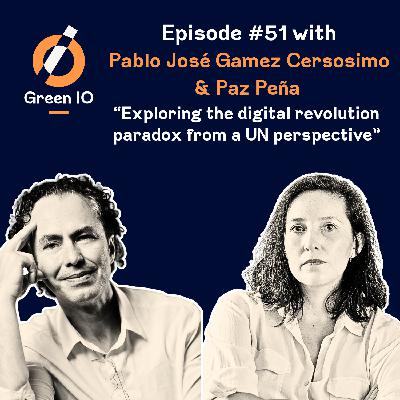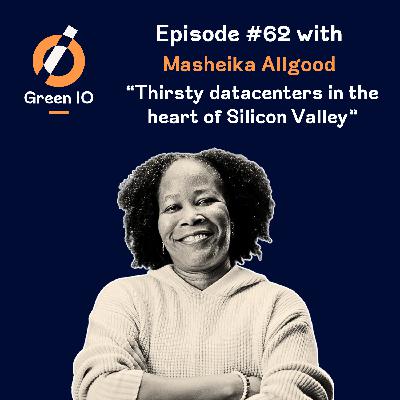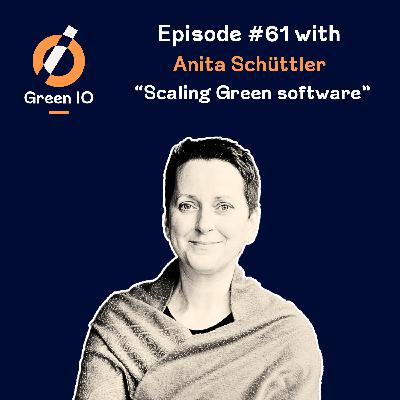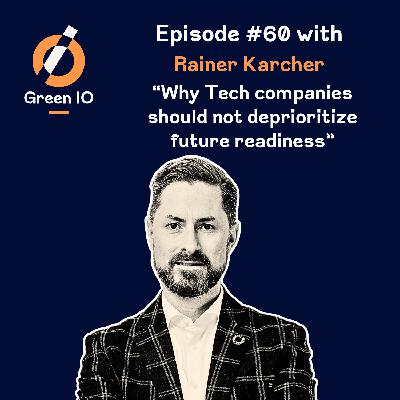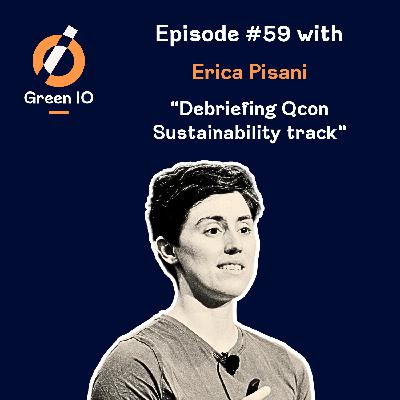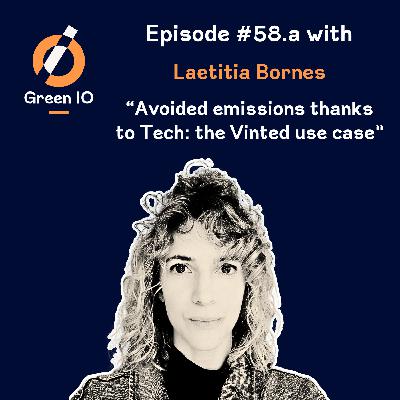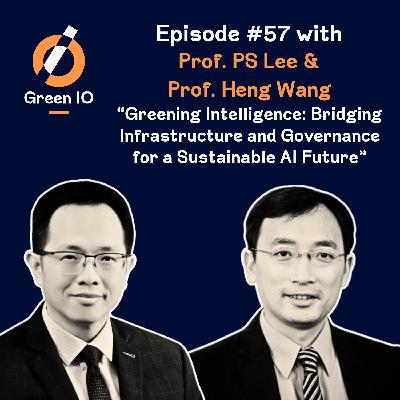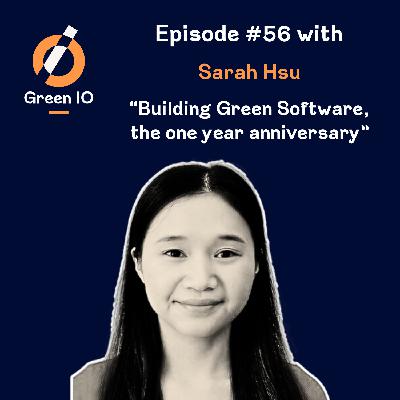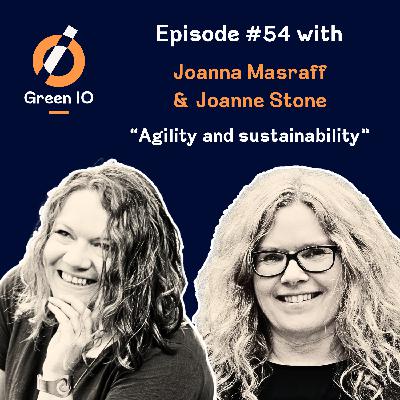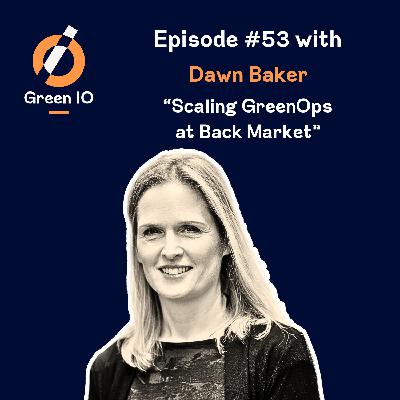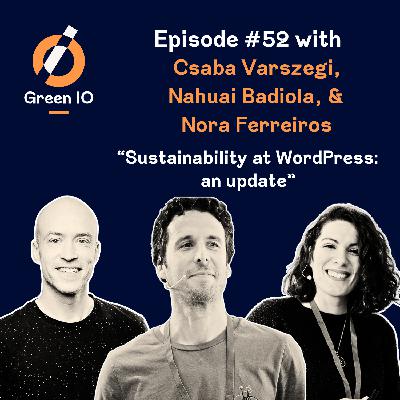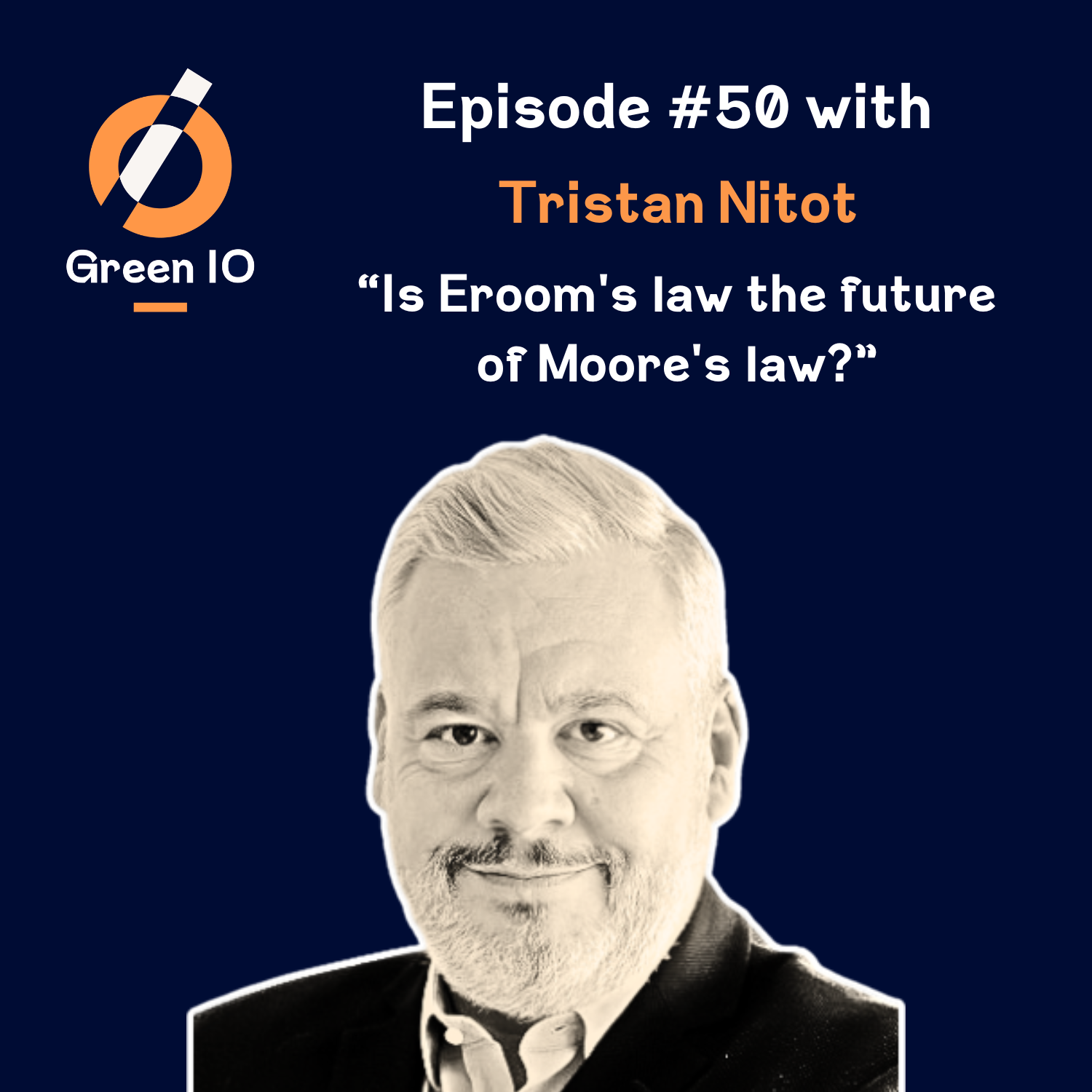#51 Exploring the digital revolution paradox from a UN perspective with Paz Pena and Pablo José Gamez Cersosimo
Update: 2025-01-30
Description
It’s a 252 pages report with the foreword of António Guterres, the Secretary-General of the United Nations, talking about digitalization and sustainability. And, for once, it’s not another report from the UN stating “let’s digitize everything to boost sustainability”. Quite the contrary as it states a “unequal ecological exchange between developed and developing countries regarding digitization”.
To discuss this “scientific report based on an ethical approach” as he described it, we welcome one of its contributors, Pablo José Gamez Cersosimo, based in the Netherlands. Another contributor, Paz Pena Ochoa, based in Chile, joined us to share her unique perspective on Latin America. Together they shared great insights about:
To discuss this “scientific report based on an ethical approach” as he described it, we welcome one of its contributors, Pablo José Gamez Cersosimo, based in the Netherlands. Another contributor, Paz Pena Ochoa, based in Chile, joined us to share her unique perspective on Latin America. Together they shared great insights about:
🗺️ Colonialism and Digitalization
🪨 Geopolitical Importance of Critical Minerals
💧 Water Footprint of Digitalization
⚒️ Water Usage and Mining in Chile
🔎 The Digital Divide: A Growing Gap
🇺🇳 The Role of the UN in Digital Sustainability
And much more!
❤️ Subscribe, follow, like, ... stay connected the way you want to never miss an episode, twice a month, on Tuesday!
📧 Once a month, you get carefully curated news on digital sustainability packed with exclusive Green IO contents, subscribe to the Green IO newsletter here.
📣 The CFP for the 2025 Green IO Conferences is now live. Apply here to share your experience on Responsible AI, GreenOps, Sustainable Design, Green Software, ...
Learn more about our guest and connect:
📧 You can also send us an email at contact@greenio.tech to share your feedback and suggest future guests or topics.
Pablo’s and Paz’s sources and other references mentioned in this episode:
- Latin American Institute of Terraforming
- Paz Pena’s book “Tecnologías para un planeta en llamas"
- UNCTAD's report “Shipping an Environmentally Sustainable and Inclusive Digitalization.” Digital Economy Report 2024.
- The real climate and transformative impact of ICT: A critique of estimates, trends, and regulations
- ClimateAction.Tech
- Branch Magazine
Transcript (auto-generated)
Pablo Gámez Cersosimo (00:00 )
our digital world is literally liquids. It is the water that makes virtuality possible. That digital light is as blue as the fresh water that make it possible.
Gaël Duez (00:19 )
Hello everyone, welcome to Green.io. I'm Gaël Duez and in this podcast we empower responsible technologists to build a greener digital world, one byte at a time. Twice a month, our guests from across the globe share insights, tools and alternative approaches enabling people within the tech sector and beyond to boost digital sustainability. This episode is the first of 2025. And being released on January 30th, I can still wish you a happy new year, full of positive impacts. I hope you will find many occasions in 2025 for using technology responsibly, in order to maintain our world livable and our societies just inclusive and at peace.
Full disclosure, I am sorry if I couldn't release this first episode of the year sooner, but January was a bit rough both on professional and personal level. Fortunately, everything is getting back on track, including your bi-monthly podcast. And something that is still on track is accessibility and transparent information remaining in the DNA of Green.io, so all the references mentioned in this episode as well as the full transcript are in the show notes. You can find these notes on your favorite podcast platform and of course on our website, greenio.tech.
Gaël Duez (01:53 )
it's a 252 pages report with the foreword of Antonio Guterres, the secretary general of the United Nations, talking about digitalization and sustainability. And for once, it's not another report from the UN stating, let's digitize everything to boost sustainability. Quite the contrary, the report highlights the growing environmental impact of the digital economy and underscores the urgent need for environmentally sustainable and inclusive digitalization strategies. Quite a change. To discuss their insights and their implications, I am delighted to have with me two of its contributors. Pablo Jose Gámez-Certrozimo, based in the Netherlands, and Paz Pena Ochoa based in Chile. So yes, another 3 time zones Paz has dedicated more than 15 years to studying the intersection between technologies, social justice and gender. She has spent the last 5 years researching the socio-environmental impacts of digital technologies in Latin America, creating in 2021 the Latin American Institute of Terraforming. And in 2023, she published a summary of that research in the book Technologies for a Burning Planet, which is in Spanish, but I won't try to say it in Spanish, but you will have the link as usual in the show notes. And by the way, this book also made a great contribution to the branch magazine of Climate Action Tech. Pablo is an external researcher for the United Nations Conference on Trade and Development, UNCTAD, as well as a coach and a scientific journalist. His research includes the publication of Depreda... I shouldn't say it in Spanish as well, but I'm going to try. His research includes the publication of Depredadores Digitales 2021, which is a global investigation that sheds light on the complex digital carbon water and waste footprints of digitalizations.
Welcome Paz, welcome Pablo. It's great to have you on the show today.
Pablo Gámez Cersosimo (04:15 )
Thank you for having us in your program.
Paz Peña (04:18 )
Yeah, thank you very much for having us.
Gaël Duez (04:20 )
My pleasure, both of you.
So Paz, is it the first UN-backed report ever to address the environmental impact of digitalization?
Paz Peña (04:30 )
Yes, it is.
Gaël Duez (04:32 )
So that's a kind of a game changer, isn't it?
Paz Peña (04:34 )
Yes, I will say absolutely. As you said before, is a report that I will say one of the first reports by the UN saying that digitalization is not all good. Even more saying that the social environmental impacts of digitization are huge, but not only huge, are differential depending on where you are in the world.
And this is very important because what it's saying is that the social environmental impacts of digitization, which are growing through the time, is being paid by the poorest of the world. The developing countries, the poorest countries. And again, the benefits of digitization.
are being enjoyed almost only for the developed world, which brings us a very classical and difficult concept, which is the colonial relationships that are again being deployed in digitization, which is something really difficult to address in the UN, but it's so necessary in these times where sustainable or sustainability is being discussed as a justice issue. And that actually brings us to discuss how digitization can be a justice issue in terms of sustainability.
Gaël Duez (06:09 )
And just to understand like the concept of colonialism or neo colonialism was brought to light in the UN report or is it more like an underlying evolution in the state of mind of UN representatives starting to incorporate this concept also in a main report as this one?
Paz Peña (06:30 )
Yeah, they will not name colonialism as it is. I don't know, Pablo, if you saw that concept as it is, because it's a very political, difficult concept for a UN fora, However, yeah, exactly. However you can see powerful concepts as, you know, unjusties, you know, different effects between the world, etc. You can see actually what they are saying is about colonialism, but of course they are not named as it is, because probably it's a very difficult concept to address in the UN.
Pablo Gámez Cersosimo (07:01 )
It is in between lines, I will say it. And to add what Paz already said, this report is the result of a process of a critical thinking process that took almost 18 months from 2023 to 2024. And it is also the result of the work of several scientific researchers from all over the world that were here for the first time, let's call it the first time at Geneva, to address the externalities regarding the digital ecosystem we are dealing with and not only that, that we are seeing intensifying in a way that we have never seen before. This is really important to address and this is the timely that
Comments
In Channel

